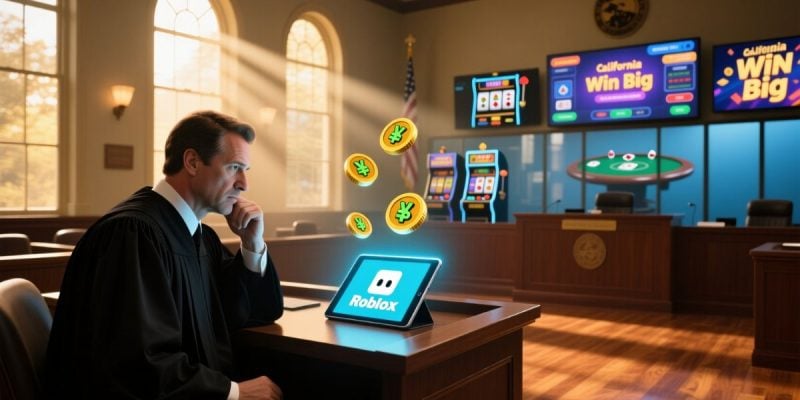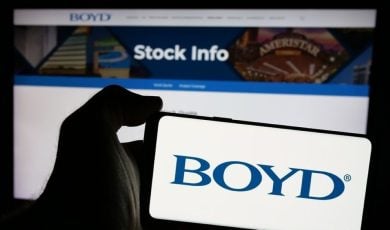Roblox has urged a federal judge in San Francisco to dismiss allegations that its platform enabled children to gamble with its in-game currency, Robux. The company argues that it neither operates nor controls any third-party online casinos accepting Robux.
US District Judge Vince Chhabria expressed skepticism, questioning whether the parents’ legal theory aligns with California’s gambling laws. He called the complaint’s reliance on those provisions a stretch and cautioned against broadly interpreting criminal law in civil suits, casting doubt on the unlawful conduct claim against Roblox.
Robux online casino gambling: Kids bet, Roblox profits
The parents allege their children used Robux to wager on third-party online casinos, with Roblox collecting an approximately 30% fee when Robux is converted back into dollars, giving the company a financial stake in the activity. These claims follow reports and enforcement actions exposing a network of off-platform Robux casinos, some of which shut down after media scrutiny. Critics and regulators have flagged weak age verification and the ease with which young Roblox users can access these services.
The complaint seeks damages and a jury trial, asserting violations of California law through unlawful conduct and unfair business practices. Although federal racketeering claims were dismissed, negligence counts remain, offering an alternative path for liability.
The parents’ attorney, Andre Mura, argued it’s premature to dismiss claims at the pleading stage, as evidence is untested. He suggested liability questions may be better resolved at summary judgment, once more evidence about Roblox’s role is available, and emphasized pursuing all legal avenues, including California’s Unfair Competition Law.
Judge questions Roblox’s gambling liability
Judge Chhabria questioned whether Roblox could be considered to operate a gambling business, as it does not own or control the third-party sites. He warned that extending criminal statutes to civil cases risks broader implications for criminal liability.
However, he noted the plaintiffs could still pursue claims under the Unfair Competition Law’s unfair business practices prong, which doesn’t require criminality, signaling skepticism about the unlawful conduct theory.
Roblox’s defense: No control over Robux third-party online casinos
Roblox firmly denies responsibility for the gambling activity described in the lawsuit. The company stresses that it does not own, lease, or control any of the third-party websites where children allegedly placed bets.
The company stated that the plaintiffs have not demonstrated that it permitted gambling to occur on the Roblox platform itself. Additionally, Roblox noted that the plaintiffs have not shown that it had agreements with the operators of the off-platform casinos.
At the hearing, defense attorney Robby Saldaña echoed the judge’s concerns about stretching criminal statutes in a civil case. Saldaña warned that such interpretations could have unintended consequences. Roblox has sought to frame itself as entirely separate from gambling operators, arguing that its role is limited to running its own platform and managing transactions involving Robux.
Robux online gambling lawsuit could shape regulations
The court has yet to rule on Roblox’s motion to dismiss, leaving unclear whether parents can proceed under both the unlawful and unfair prongs of California’s Unfair Competition Law, which could shape remedies and trial practice.
The case may influence platform liability involving virtual currency and third-party sites and raises broader questions about applying criminal statutes in civil cases. A decision could impact future legal actions and the regulation of virtual currency use in games by children.









